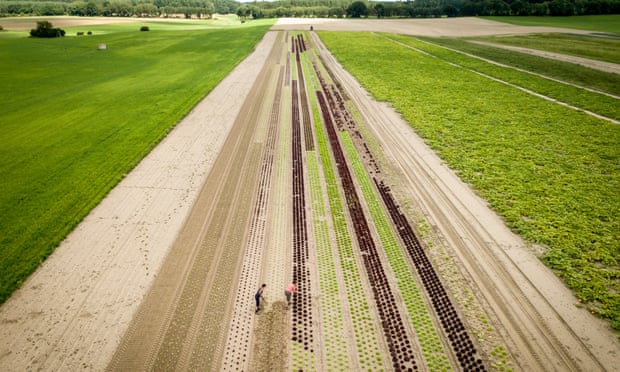Strategies for feeding the world more sustainably with organic agriculture
Adrian Muller, Christian Schader, Nadia El-Hage Scialabba, Judith Brüggemann, Anne Isensee, Karl-Heinz Erb, Pete Smith, Peter Klocke, Florian Leiber, Matthias Stolze and
Urs Niggli
Urs Niggli
14 November 2017. The Guardian. Converting land from conventional agriculture to organic production could reduce greenhouse gas emissions, the run-off of excess nitrogen from fertilizers, and cut pesticide use. It would also be feasible to convert large amounts of currently conventionally farmed land without catastrophic harm to crop yields and without needing huge amounts of new land.
In this article Organic agriculture is proposed as a promising approach to achieving sustainable food systems, but its feasibility is also contested.
- The researchers used a food systems model that addresses agronomic characteristics of organic agriculture to analyze the role that organic agriculture could play in sustainable food systems.
- Here they show that a 100% conversion to organic agriculture needs more land than conventional agriculture but reduces N-surplus and pesticide use.
- However, in combination with reductions of food wastage and food-competing feed from arable land, with correspondingly reduced production and consumption of animal products, land use under organic agriculture remains below the reference scenario.
- Other indicators such as greenhouse gas emissions also improve, but adequate nitrogen supply is challenging.
- Besides focusing on production, sustainable food systems need to address waste, crop–grass–livestock interdependencies and human consumption.
- None of the corresponding strategies needs full implementation and their combined partial implementation delivers a more sustainable food future.


No comments:
Post a Comment